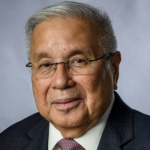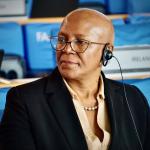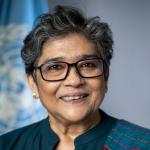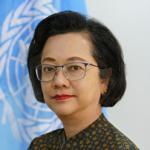Part I: Africa, Least Developed Countries and Landlocked Developing Countries (15:00 to 16:30)
Advancing sustainable, inclusive, science- and evidence-based solutions for the SDGs is crucial for African countries, least developed countries (LDCs), and landlocked developing countries (LLDCs). These countries all face unique challenges that require tailored approaches to sustainable development, including in areas such as strengthening healthcare systems and improving access to essential medicines; ensuring that women and girls have equal access to education, healthcare, and economic opportunities; promoting inclusive and sustainable economic growth by enhancing productive capacities and fostering innovation; and boosting food security and coastal livelihoods through sustainable management of fisheries and protection of marine ecosystems. For LLDCs, improving infrastructure and connectivity is also vital to overcome geographical barriers and facilitate trade.
Proposed guiding questions:
- How can African countries, LDCs and LLDCs accelerate inclusive economic growth and build resilience against economic and environmental shocks, and address the impacts of conflicts?
- What innovative financing and partnership models are most effective for expanding fiscal space and accelerating SDG progress in African countries, LDCs, and LLDCs facing persistent debt distress and limited resources?
- How can governments and development partners close persistent gender gaps in education, healthcare, and economic participation, ensuring that women and girls are fully included in sustainable development efforts?
Chair:
- H.E. Mr. Bob Rae, President of ECOSOC
Moderator:
- Ms. Cristina Duarte, Under-Secretary-General and United Nations Special Adviser on Africa
Panellists:
- Ms. Rabab Fatima, Under-Secretary-General and High Representative for LDCs, LLDCs and SIDS and Secretary-General of the Third UN Conference on Landlocked Developing Countries (LLDC3)
- H.E. Ms. Nosipho Jezile, Chairperson, Committee on World Food Security (CFS)
- Mr. Landry Signé, Senior Fellow, Global Economy and Development, Africa Growth Initiative, Brookings Institution
Lead discussant:
- Mr. Robert Akoto Amoafo, Pan Africa ILGA
Part II: Middle-Income Countries (16:30 to 18:00)
More than half the world's countries are classified as "middle-income countries" or MICs. They include around 75 per cent of the world's population and accounted for over 57 per cent of global GDP in 2024. MICs face the challenge of transitioning to growth models that achieve higher living standards and overcome the "middle-income trap." This transition requires significant investments from both public and private sources. However, MICs are constrained by limited fiscal space and high costs of accessing international financial markets, with restricted access to concessional finance due to their middle-income status. Detailed, multi-dimensional needs assessments beyond GDP per capita are necessary to inform policies and increase international cooperation. Innovative financing mechanisms and revitalized multilateral cooperation for global public goods, such as climate change mitigation and financial architecture reform, are essential to reduce the risks and vulnerabilities faced by MICs.
Proposed guiding questions:
- Historically, MICs have faced difficulties in maintaining sufficient gross domestic product per capita growth to raise living standards to levels associated with developed countries. In today’s global context, marked by recurrent crises, stronger protectionism, limited access to finance and weaker multilateralism, how can middle-income countries make faster and longer-lasting progress?
- How can middle-income countries break structural barriers and achieve sustained, sustainable and inclusive growth, including through digital transformation? What have we learned from successful cases?
- What are some of the greatest challenges that middle-income countries face in harnessing digital technologies and AI, and what strategies can be employed to mitigate these challenges?
- How can international cooperation and South-South digital cooperation support the digital transition in middle-income countries? What are some successful examples?
Chair:
- H.E. Mr. Bob Rae, President of ECOSOC
Moderator:
- H.E. Mr. Antonio Manuel R. Lagdameo, Permanent Representative of the Republic of the Philippines to the United Nations
Panellists:
- Ms. Armida Salsiah Alisjahbana, Executive Secretary, Economic and Social Commission for Asia and the Pacific (ESCAP)
- Mr. John W. McArthur, Director, Center for Sustainable Development, Senior Fellow, Global Economy and Development, Brookings Institution
Lead discussant:
- Mr. Naveen Gautam, Global Forum of Communities Discriminated on Work and Descent Youth Group
Interactive discussion:
Due to limited time and to maximise participation, interventions in interactive discussions should be limited to two to three minutes. The time limit will be strictly implemented, using a timing device and/or microphone cutoff as necessary. Depending on the number of requests for the floor in a given discussion, the time limit may be adjusted downward, as necessary. Participants are discouraged from reading prepared statements; instead, they are encouraged to make informal remarks and engage in an interactive discussion. Priority will be given to ministerial-level interventions.
 Welcome to the United Nations
Welcome to the United Nations











